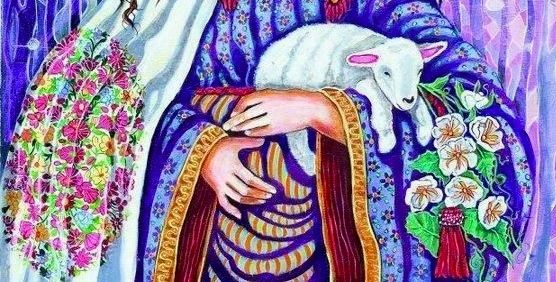Mary, Mary…NOT Contrary

This Saturday, on August 15th, Christians around the world will celebrate the life and witness of Mary. What do we know about her? Why does she matter?
She is Jesus’ mother. Everything we know about her springs from that relationship. Well known are her life events: her encounter with the angel Gabriel; the haste with which she fled to see Elizabeth; the birth of Jesus in a stable far from her home; the visit of the wise men, the holy family’s flight to Egypt; her worried searching for Jesus when he was twelve; the miracle at the wedding in Cana; her perplexity when Jesus seems to reject her, her grief at his death.
Yet these events occurred 2000 years ago. What might we learn from her today, some 200 centuries later? Consider the two main gifts she gives us:
Despite her initial gut reaction, she said yes.
When Gabriel approached Mary, he said, “Hail, O favored one, the Lord is with you!” Mary’s unspoken response: she was greatly troubled at the saying, and considered in her mind what sort of greeting this might be. (Luke 1:28-29)
She was a smart girl. Most people do not wish to be high on the radar of cosmic forces, oncologists or fire departments. Mary knew that she was on God’s radar. Of course she was troubled. Of course she considered in her mind what sort of greeting “this might be.”
She knew the scriptures: how the angel of the Lord went through King Sennacherib’s camp, causing 185,000 Assyrian soldiers to die (2 Kings 19:35); how Jacob fought with an angel and was disabled (Genesis 32:24-30); how an angel had issued a call to war by causing a fire to spring up in front of Gideon (Judges 6:11-21).
Hard not to be afraid, for punishment for adultery was stoning. Neither Joseph nor her parents would understand—and yet somehow, she found the strength and faith to tell Gabriel, “Let it be to me according to your word.” (Luke 1:38)
In our time, we say no much more often than we say yes. It’s far easier to be the critic, the skeptic, the hand-wringer, the one who holds back. Let someone else step up, we think. We’ll just react. We’ll criticize. We’ll amend.
But Mary said yes. She stepped ahead in faith, with only the broadest outline of what was to come. And here’s something we don’t consider: What would God have done had she said no? Gone to the next girl on the block? No. Had Mary said no, Jesus would not have been born. And then what? Hard to imagine. No Mary, no Jesus. No Jesus…no Jesus? We take it all for granted, but God would not have demanded Mary bear his son—after all, God is the primary believer in free will and designed this world to have it.
Mary was God’s full partner. She said yes. And that is her first great gift to us: an example of how to say yes, knowing that once we go down that road, other roads will shut down…but going down it anyway, knowing that we do not go alone.
Once the commitment to faith has been made, questions take on a much deeper meaning.
Everyone is entitled to ask questions, and everyone does. Critics, skeptics, agnostics and atheists make it their calling to live in that world, and never advance beyond it. But once a faith commitment has been made, questions take on a much deeper meaning. We’re in or we’re out. In choosing faith, we take on a real partner: God. Or we live on the edges… dancing, dancing…but alone at the end of the night, alone in the night.
Mary was in, all in. And her questions, wisely, continued. She questioned deeply what Gabriel wanted her to do. She “pondered all these things in her heart” when the wise men and shepherds arrived to view the infant Jesus. She felt deep anxiety and anger when she discovered twelve year old Jesus back in the temple at Jerusalem instead of staying with the family on their way home from a yearly religious pilgrimage. And when she stood at the food of the cross and watched the life drain from her son, clearly questions and doubts and fears and anger came together at in her heart.
But she was in, all in. And like Thomas and Martha of Bethany and Gideon, like people of faith who asked questions because they believe—not because they doubt—she had the arms of God to fall back into, to trust, to hold her in her darkest moments.
Such bedrock faith gives us the ability to ask even deeper questions than we might otherwise, for we know we dance with a Partner who will not let us fall. No longer do we have the uncertainty that if we stumble we fall into darkness. Mary found the strength she needed to get through even the most difficult of days. While we take the crucifixion for granted, she lived through it. While we celebrate the resurrection of Jesus, she was still without her beloved son. Never again in this life would she hold him in her arms. Never again in this life would she hear his voice.
Yet because of the faith commitment she had made as a teenager, she was able to go forward, a day at a time, believing, trusting, hoping. And for us, that may be her greatest gift of all.
Adapted from Bible Women: All Their Words and Why They Matter, published by Forward Movement, 2014.
Artwork: Lovingly created by Karen N. Canton. From The Scarlet Cord: Conversations with God’s Chosen Women, published by John Hunt Publishing, 2010.

